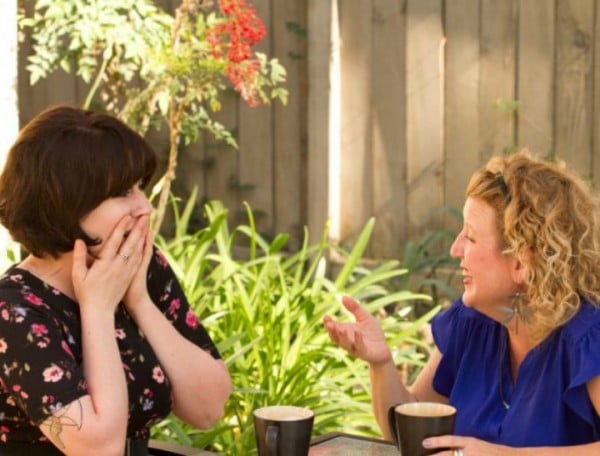
By Karen Burge.
Have you ever opened up about a personal issue only to find your friend steam-rolls the conversation and makes it all about them? Or perhaps they don’t respond how you’d expect and you wonder if they were paying attention at all.
Good listening is a challenge many of us underestimate. If someone is experiencing a mental health issue or the topic of discussion is complex, then it becomes all the more important to be fully present and engaged.
ReachOut Australia CEO Jono Nicholas says listening well lets others know you value them, and that sense of connectedness can improve your wellbeing too.
Like Debrief Daily on Facebook.
It also has the potential to improve and deepen relationships in everyday situations or when someone is truly in need.
So, if it’s good for them and it’s good for you, how do we improve? Here are ten things good listeners do that the rest of us don’t:
1. Allocate talk time.
Give them time and limit distractions, says Black Dog Institute Director of Psychological Services, Associate Professor Vijaya Manicavasagar.
If you can’t give them 100 per cent, then ‘be open and honest’ and say, “I really want to hear what you have to say but I’m a bit busy. Can we do this after work when I can give you my full attention?”


